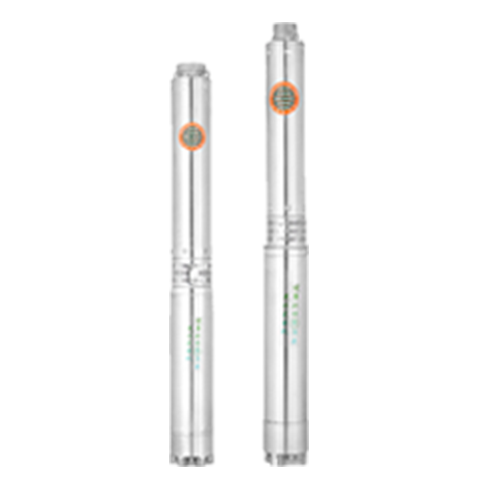Dec . 05, 2024 11:06 Back to list
Exploring the Benefits of Submersible Mixers in Industrial Applications and Wastewater Treatment
The Importance of Submersible Mixers in Industrial Processes
In various industrial processes, mixing is a critical operation that ensures the homogeneous distribution of materials. One of the most effective devices for achieving this is the submersible mixer. Designed to operate fully submerged in liquids, submersible mixers play a crucial role in applications ranging from wastewater treatment to chemical processing.
What is a Submersible Mixer?
A submersible mixer is a type of agitator that is specifically designed to be submerged in a tank or basin. These mixers typically feature a motor and impeller assembly, which creates turbulence in the fluid to promote mixing. Because they are submerged, they can handle large volumes of liquid with ease and are particularly effective in maintaining uniformity in various mixtures.
Mechanism and Design
The design of submersible mixers can vary, but most consist of a motor, a shaft, and an impeller. The motor is either directly mounted on the impeller or connected via a gear reducer, optimizing the efficiency of the mixing process. Impellers come in various shapes and sizes, which can influence the flow patterns and mixing efficiency. Common styles include propeller, turbine, and axial flow impellers, each suited for different types of applications based on the specific needs of the process.
Applications of Submersible Mixers
Submersible mixers are extensively utilized in numerous industries, including
1. Wastewater Treatment In wastewater treatment plants, submersible mixers are essential for maintaining the appropriate conditions for biological processes. They help to keep sludge in suspension, preventing sedimentation and promoting even distribution of microorganisms throughout the tank.
2. Chemical Processing Mixing chemicals is vital in various production processes. Submersible mixers facilitate the even blending of liquids, ensuring consistent product quality. From the production of pharmaceuticals to the formulation of specialty chemicals, their role is indispensable.
3. Food and Beverage In the food industry, maintaining consistency in flavors and textures is paramount. Submersible mixers help achieve uniformity in sauces, emulsions, and other mixtures, contributing to product quality and safety.
4. Pharmaceuticals The pharmaceutical industry demands high levels of precision and cleanliness. Submersible mixers are often used in the mixing of active pharmaceutical ingredients (APIs) and excipients, ensuring that products meet stringent regulatory standards.
submersible mixer

5. Aquaculture In aquaculture, maintaining water quality is critical for the health of aquatic organisms. Submersible mixers promote circulation in fish tanks and ponds, helping to maintain oxygen levels and distribute feed evenly.
Advantages
There are several advantages to using submersible mixers
- Energy Efficiency They generally consume less energy compared to traditional mixers because they are designed for efficient fluid dynamics. - Space Saving As they are submerged, submersible mixers often require less installation space than other types of mixing equipment, which can be beneficial in facilities with limited room.
- Flexibility These mixers can be used in various tank sizes and depths, making them suitable for a range of applications.
- Reduced Maintenance With fewer moving parts exposed to the environment, submersible mixers tend to have lower maintenance requirements and longer lifespans.
Challenges
Despite their many advantages, submersible mixers can face challenges such as
- Thermal Management Because the motors are submerged, they can be subjected to heat buildup, which may require careful design consideration for cooling.
- Corrosion Resistance Depending on the application, materials used in the construction of submersible mixers must be resistant to corrosion from aggressive chemicals or seawater.
Conclusion
In summary, submersible mixers are an integral part of many industrial processes, offering efficient and effective mixing solutions. Their versatility, energy efficiency, and ability to operate under demanding conditions make them indispensable in numerous applications. As industries continue to evolve, the role of submersible mixers will undoubtedly become even more vital, ensuring that businesses achieve optimal performance and product quality in their operations. With ongoing advancements in technology, we can expect to see improvements in mixer design and functionality, further enhancing their effectiveness across various sectors.
-
Submersible Water Pump: The Efficient 'Power Pioneer' of the Underwater World
NewsJul.01,2025
-
Submersible Pond Pump: The Hidden Guardian of Water Landscape Ecology
NewsJul.01,2025
-
Stainless Well Pump: A Reliable and Durable Pumping Main Force
NewsJul.01,2025
-
Stainless Steel Submersible Pump: An Efficient and Versatile Tool for Underwater Operations
NewsJul.01,2025
-
Deep Well Submersible Pump: An Efficient 'Sucker' of Groundwater Sources
NewsJul.01,2025
-
Deep Water Well Pump: An Efficient 'Sucker' of Groundwater Sources
NewsJul.01,2025
-
 Submersible Water Pump: The Efficient 'Power Pioneer' of the Underwater WorldIn the field of hydraulic equipment, the Submersible Water Pump has become the core equipment for underwater operations and water resource transportation due to its unique design and excellent performance.Detail
Submersible Water Pump: The Efficient 'Power Pioneer' of the Underwater WorldIn the field of hydraulic equipment, the Submersible Water Pump has become the core equipment for underwater operations and water resource transportation due to its unique design and excellent performance.Detail -
 Submersible Pond Pump: The Hidden Guardian of Water Landscape EcologyIn courtyard landscapes, ecological ponds, and even small-scale water conservancy projects, there is a silent yet indispensable equipment - the Submersible Pond Pump.Detail
Submersible Pond Pump: The Hidden Guardian of Water Landscape EcologyIn courtyard landscapes, ecological ponds, and even small-scale water conservancy projects, there is a silent yet indispensable equipment - the Submersible Pond Pump.Detail -
 Stainless Well Pump: A Reliable and Durable Pumping Main ForceIn the field of water resource transportation, Stainless Well Pump has become the core equipment for various pumping scenarios with its excellent performance and reliable quality.Detail
Stainless Well Pump: A Reliable and Durable Pumping Main ForceIn the field of water resource transportation, Stainless Well Pump has become the core equipment for various pumping scenarios with its excellent performance and reliable quality.Detail
